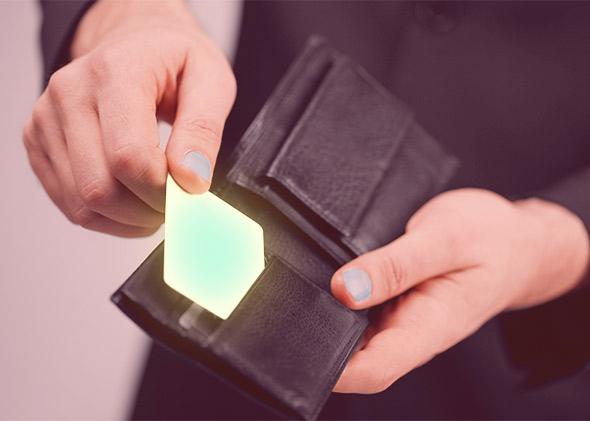Recently, I came close to losing thousands of dollars—and my new home—when a real-estate deal nearly fell through over issues with government-issued identity documents. Problems I would not have had if I’d once possessed the foresight to avoid being born with my genitalia turned inside out.
You see, after I determined what I could reasonably afford, found the condo I wanted, and signed the agreement to purchase … only then did I find that I couldn’t get approval from my mortgage broker, despite a very good credit rating, which I have worked hard to maintain (even through two difficult years of very spotty employment following my gender transition). Money wasn’t the issue here; identification was.
In my own name, I have standing accounts at my bank, including my current home’s mortgage. I also have credit cards, bank statements, and tax returns, all belonging to Christin Milloy, registered at my current address. With all manner of financial documents and relationships already established, I had no cause to believe I might need to go through a fresh process of confirming my identity. So imagine my surprise when, after receiving a glowing “qualification” for the mortgage I needed, I was told I would just need to provide my photo ID to turn that “qualification” into an “approval.”
I don’t have photo ID, something I’ve been fighting about with the governments of Ontario and Canada for almost five years.
I recall the all-too-familiar sinking sensation that came over me, that empty slot in my wallet (where a person would normally carry ID) once again weighing me down with all the power of a singularity: temporarily transforming the laws of physics around me in a localized field, rendering impossible an otherwise normal transaction, dilating an already difficult moment into a seeming eternity.
I sat on the phone and patiently explained why I can’t provide photo ID. Because I don’t have any. Because the government has destroyed all my previous ID documents and refused to replace them on several occasions. Because I am transgender. Yes, really. No, I don’t think it’s fair, either. Yes, a lot of people are surprised it’s so hard for us, but there it is. No, I really don’t have anything at all. Mmm, OK. Call me back. Goodbye.
We looked into other ways I could prove my identity. It turns out, there aren’t any.
What if I show the dozens of letters back and forth between me and the government, where officials explain that my identity is not in question, but they still won’t send me new ID, because I refuse to check “male” on the application form? Apparently that doesn’t count.
How about expired government-issued ID? Back from a simpler time, when the government and I agreed on what my gender should be. I have that; it even has my photo and my old name on it. (Old-name ID presented alongside a legal ”change of name” certificate is considered valid to identify a person by their new name.) But alas, it’s against the rules to accept expired ID, even under exceptional circumstances.
What about a photograph of me along with a letter, signed and solemnly declared before a notary public, by a cis friend who has ID and is willing to certify that I am, in fact, who I say I am? Also unacceptable.
How about a photo of me from a newspaper article about how trans people have problems getting access to government-issued ID? Still not good enough.
Signed letters from employers who know me? Doctors? Lawyers? Legislators? Still no!
In a reasonable world, made up of real human people, empowered to act by their agency, intellect, and compassion, any of these methods would have been acceptable to confirm my identity. But that’s not the law. It’s as if Moses stood on the hill, flipped over the second tablet, and noticed an extra commandment: “Thou shalt not approve a mortgage without government-issued photo ID.”
At what point did we become a society so thoroughly computerized, so coldly impersonal, all common sense banished, that there can be no acceptable solution to verify who I am other than some supreme plastic card? That tiny little card, an apparently critical component of a callously rigid system, into which trans people just don’t fit—their attempts to participate on equal terms simply chewed up, spit out, and forgotten.
If you challenge ministries and regulators about this problem in writing (and I have, repeatedly), they reply with form letters citing concerns about fraud, identity theft, and integrity. The unspoken statement in these responses is that such “reasons” justify continuing discrimination against trans people.
In the end, I did get it sorted out, but only after asking for help from a local legislator whose staff graciously helped me expedite the government’s delivery of a new birth certificate (which, despite an impassioned plea, still came with a “male” sex designation). It also took dozens of hours of missing work, errands, running around, paperwork, fees, and stress before it was over.
These are all ridiculous problems I would never have had if I were a cis person: That’s cis privilege. But it’s also the law.
